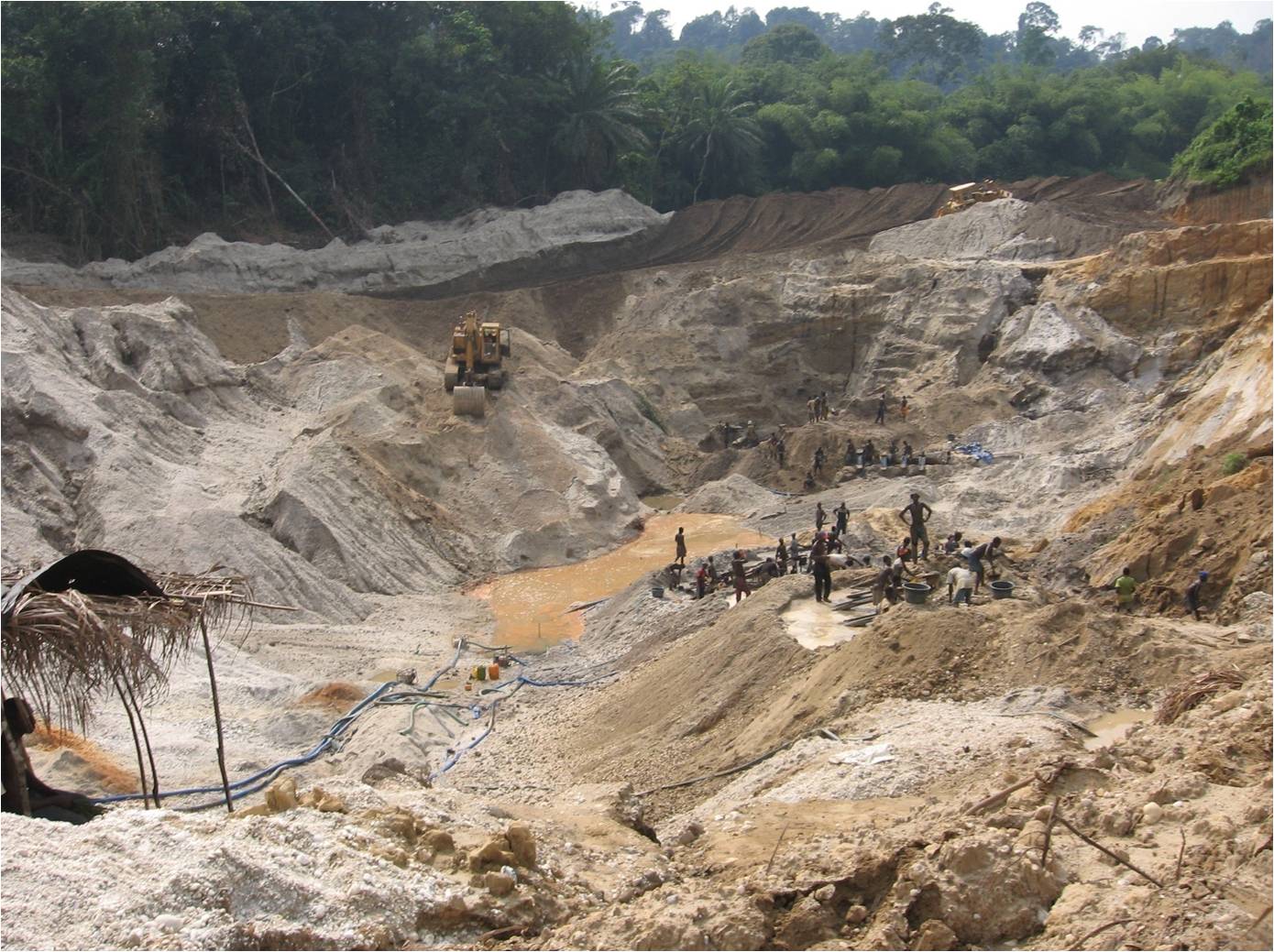14 May 2010
Today I will post an excerpt from Ghana's Minerals and Mining Act, 2006 (Act 703), as well as a picture of operations of so-called “small-scale” miners:
Operations of small scale miners
93 – A person licensed under section 82 may win, mine and produce minerals by any effective and efficient method and shall in its operations observe good mining practices, health and safety rules and pay due regard to the protection of the environment during mining operations.
This picture was taken by one of our team of consultants, participating in the National Environmental Impact Assessment of Mining and Exploration Areas, and Strategic Environmental Assessment Project, part of the EU-funded Mining Sector Support Programme (MSSP). It shows at least three gangs of workers washing material through sluice boxes to recover gold. Two large excavators are visible, as are pumps to keep the excavation (which used to be part of the bed of the Ankobra River) as dry as possible. Various transgressions of the quoted paragraph of the Mining Act are obvious.
Whereas the large-scale mines in Ghana (and elsewhere in Africa) are obliged to toe the line, follow Acts and Regulations, provide various social services (typically health-, sanitation- or education-related) to their local communities over and above the legislated requirements, many small-scale miners like the ones in the picture, operate with impunity. When the environmental and mining inspectors visit sites like these, they often find foreigners operating the expensive equipment, but they typically claim to be “only contractors” and don't seem to be aware of where the licence holders can be found. Neither do the workers who work in these conditions for a pittance. Anecdotal evidence suggests that the eventual beneficiaries are powerful men in the region (sometimes even politicians) or in the capital. Records of the taxes and royalties paid by these operations are impossible to find.
Many people (and some major international institutions) believe that small-scale mining is a poverty-reducing system that should be supported and “improved”. The reality is that these gangs frequently involve workers from other regions of the country (or even from the neighbouring countries) who import their labour and their earning into local communities where they are not always welcome. Alcohol abuse, prostitution, and various other problems arise, so that the original local community is frequently worse off than before.
Moreover, as an economic geologist I am very aware that orebodies are not renewable sources of wealth, they should only be mined once, and as efficiently as possible. Operations with low rates of recovery (like these and many other small-scale mining ventures) result in the loss of a percentage of the metal being mined, which may never be mined economically again. As an inhabitant of this only Earth that we have, I believe firmly that resources should only be depleted when the fullest possible use is made of them, and when the full cost of their extraction is covered. In operations like the one in the picture, the environmental and social costs are clearly not carried by the operators, and will be carried by the nation at some time in the future. The workers get a wage that is just about good enough to survive on, the local community gets a lot of noise, dust, muddy river waters, prostitution, diseases, etc. And some “big men” elsewhere top up their bank accounts…



